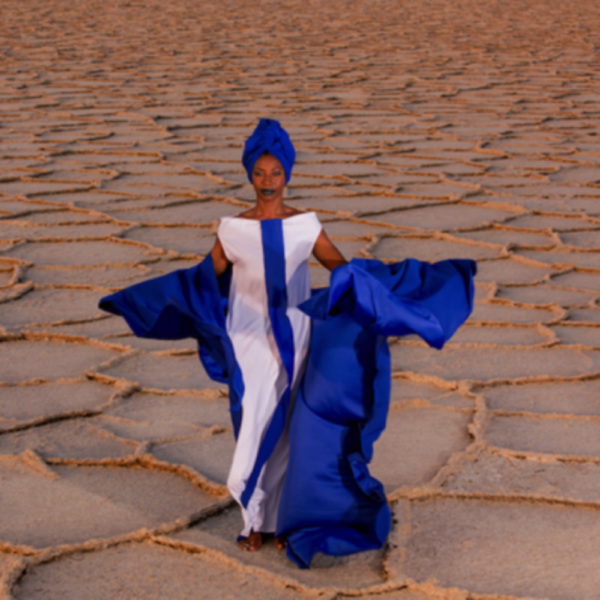Any young female singer in Mali has to know that she is stepping into the territory of goddesses. From Fanta Damba to Oumou Sangaré, Mali has produced as many exceptional women of song as just about any place on earth. But if any of that has ever felt intimidating to Fatoumata Diawara, there’s no hint of it on her sophomore release, Fenfo, a bold set of 11 tracks that merge Wassoulou and other traditional Malian genres with savvy rock elements to arrive at a distinctly personal sound.
Diawara takes time with recording. It’s been seven years since her debut, Fatou, and there’s no mistaking how she has grown as songwriter and singer. First, songwriting. “I do my writing because I am ready to share something with my audience,” she told Afropop, noting that she hasn’t just been sitting around all these years; in addition to much touring, she has undertaken projects with Bobby Womack, Damon Albarn, Amadou and Mariam, Flea, Roberto Fonseca and Snarky Puppy. But when the time came that she was ready to speak out on her own, she chose above all to speak to the young generation of Africans.
“Nterini,” the funky, swinging opener, cautions young Malians against the risk of migration to Europe, emphasizing the heartache of separation from home and loved ones. The sight of Africans at sea, running away, flies in the face of the story Fatoumata wants to tell—the story of building a new Africa. Speaking of those dreamers on the run, she says, “Their story doesn’t start from the sea or the desert. They weren’t born as immigrants.”
Diawara knows hardship firsthand, and this comes through in her work. She was raised by a strict, even abusive, aunt and had to fight for her independence, first as an actress and then as a singer. As such, she has no interest in singing mere love songs. She takes a turn at the beguiling northern takamba rhythm, leading off with her own acoustic guitar, gradually filled out by her band with ambient wails and cries—from guitars, but also distant voices. Diawara’s “Takamba” calls for peace in the north, but specifically highlights the plight of women during the difficult events that have occurred up there since the rebellions and chaos of 2012. “Don’t beat me in front of my children,” she sings, taking on the voice of a woman speaking out, but also implicitly addressing the larger cruelties of the situation in the north.
Part of taking time with the songs is finding the right words to express difficult ideas in a way people can hear. “I like to be direct,” says Fatoumata, “but also respectful.” Hence, she can call for African unity and women’s education and decry arranged marriages with such gravity. Above all, her goal is to inspire young Malians, and young people everywhere, to take matters into their own hands: “Stop complaining; stand up and make things happen. Don’t wait for people to save you.”
Now to the voice. On this album, and especially in her electrifying live performances, Diawara has blossomed into a singer with spectacular emotional and technical range. She can coo and whisper all on her own—as on the lullaby-like “Mama”—or uncork a hurricane of vocal passion over her band’s muscular grooves, as on this album’s Wassoulou-flavored title track. There’s a raspy edge on her vocal on “Bonfa,” a techy rock song featuring kora by young superstar Sidiki Diabaté (son of Toumani). “Negue Negue,” the album’s funkiest track, is also its most celebratory, though Diawara lays into the vocal with cool rebelliousness that belies the upbeat lyrics.
Well worth the wait, Fenfo marks an impressive milestone as Diawara shapes her place in the august pantheon of Malian divas.










